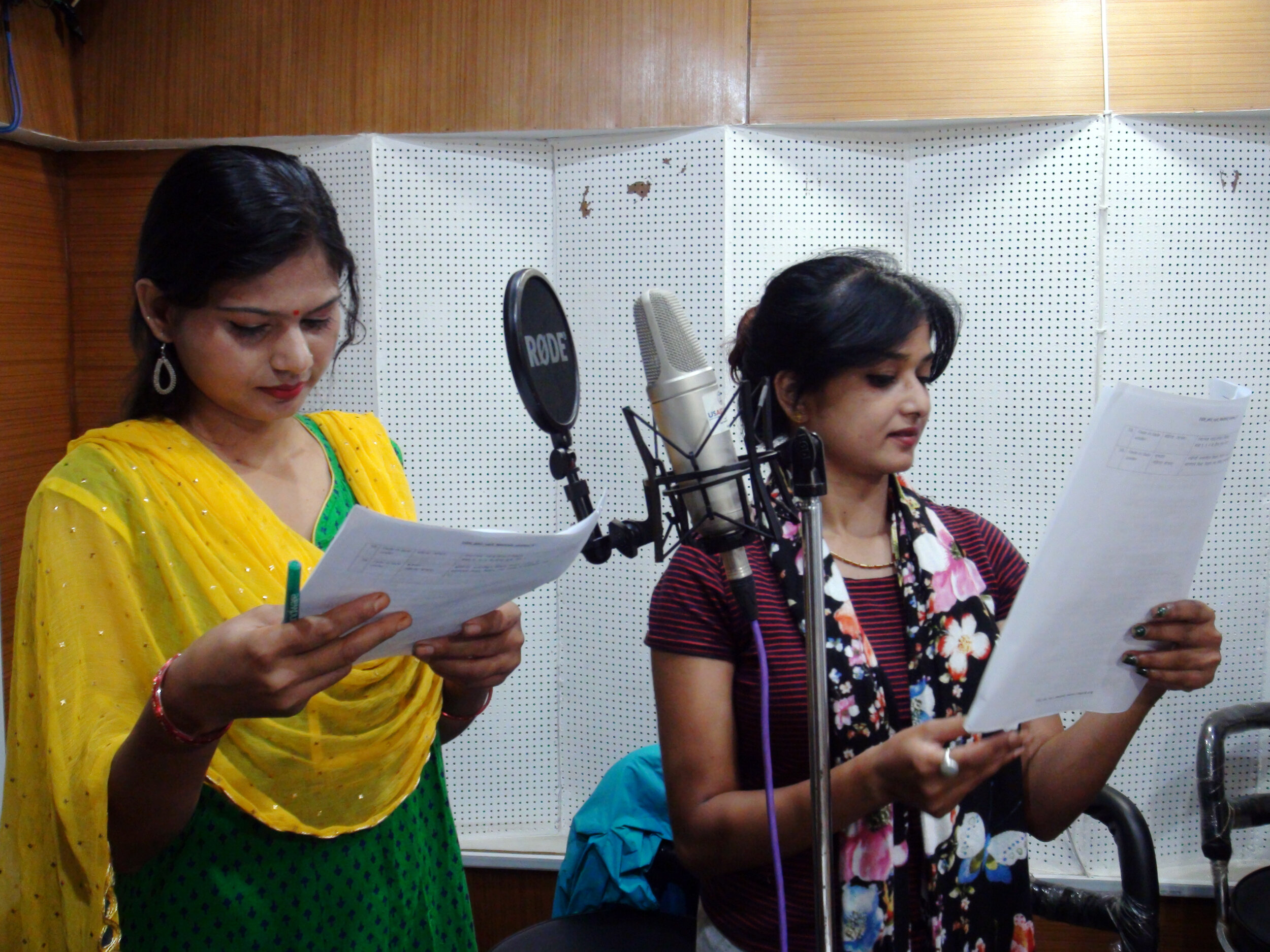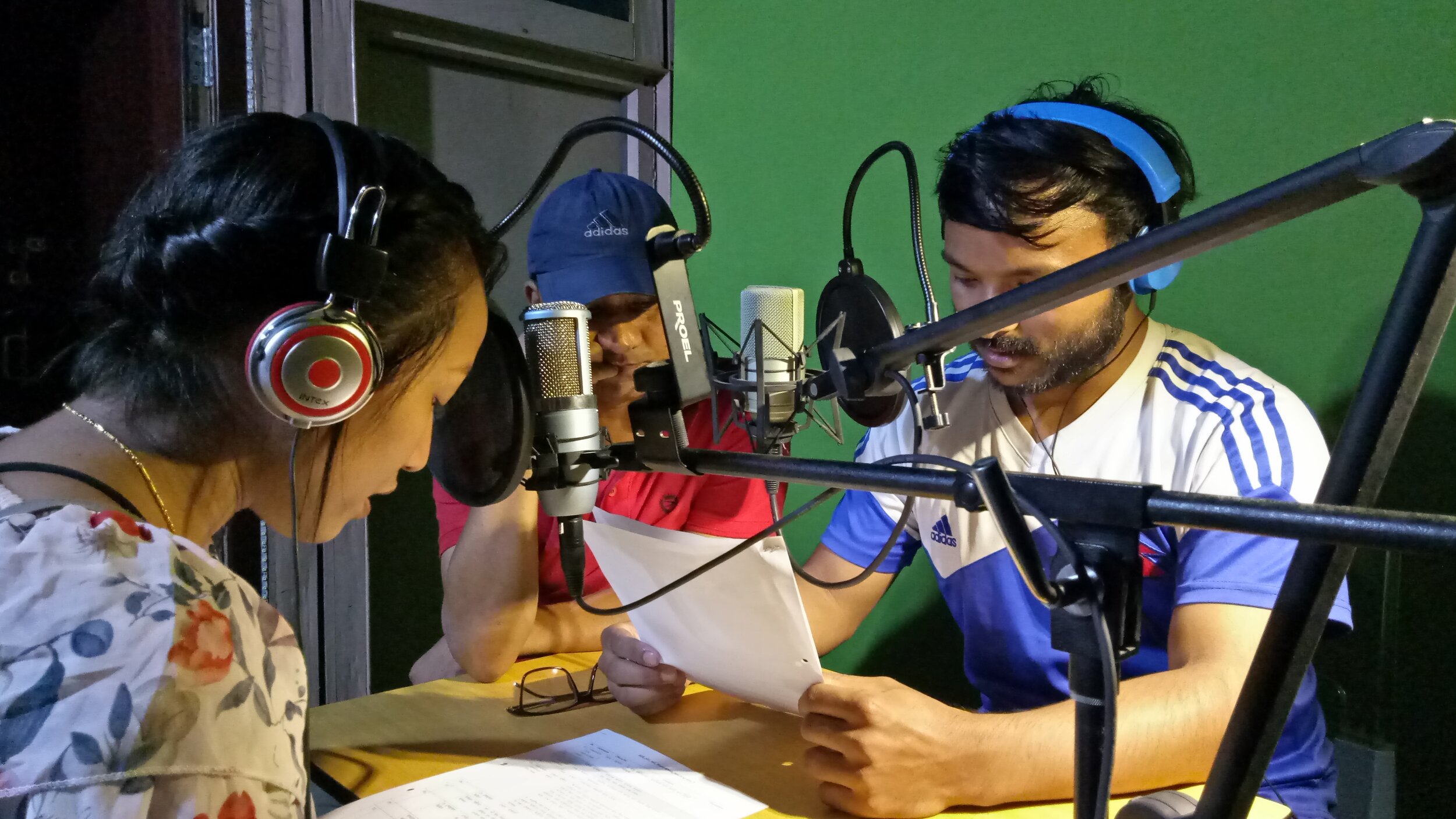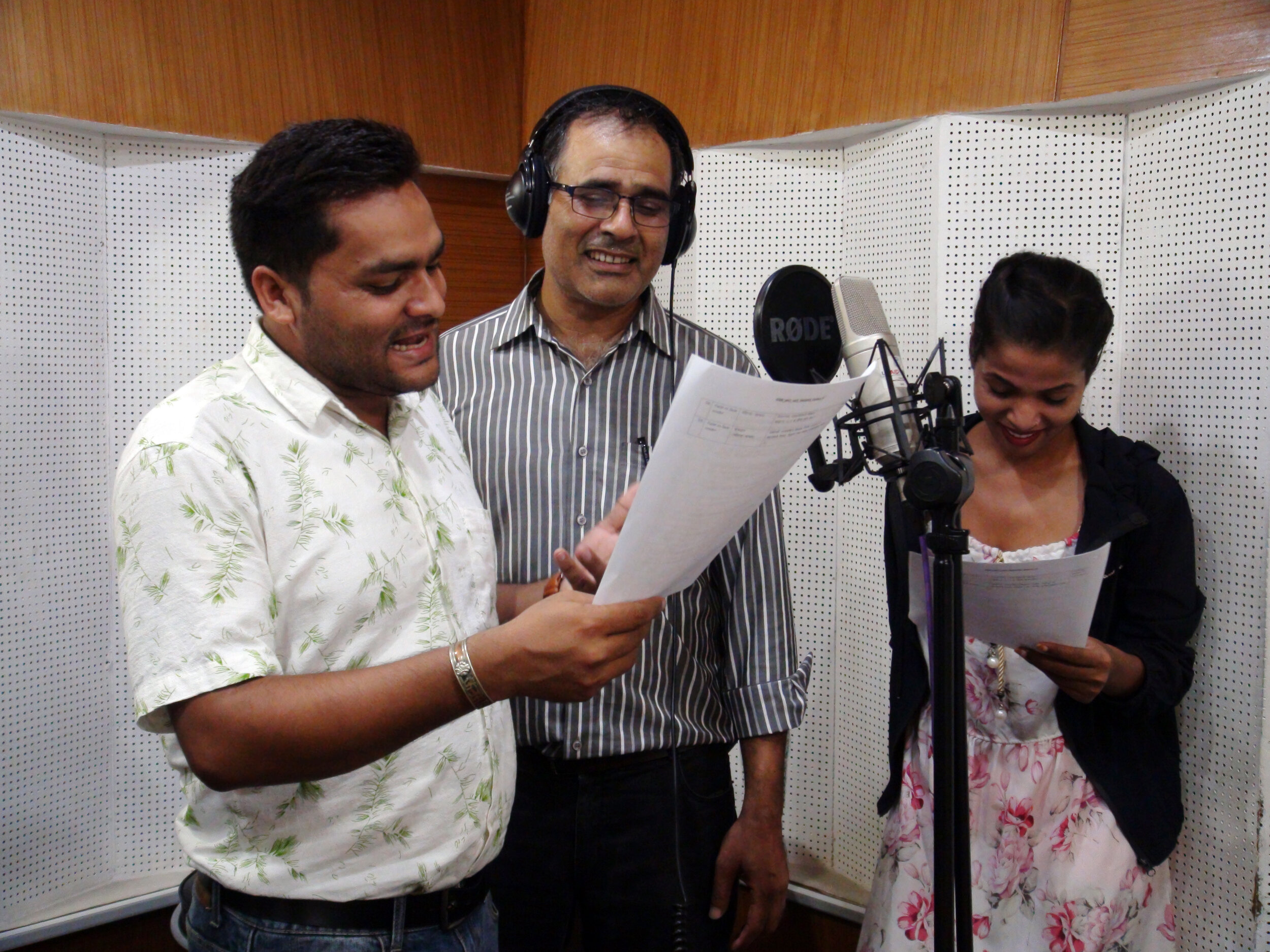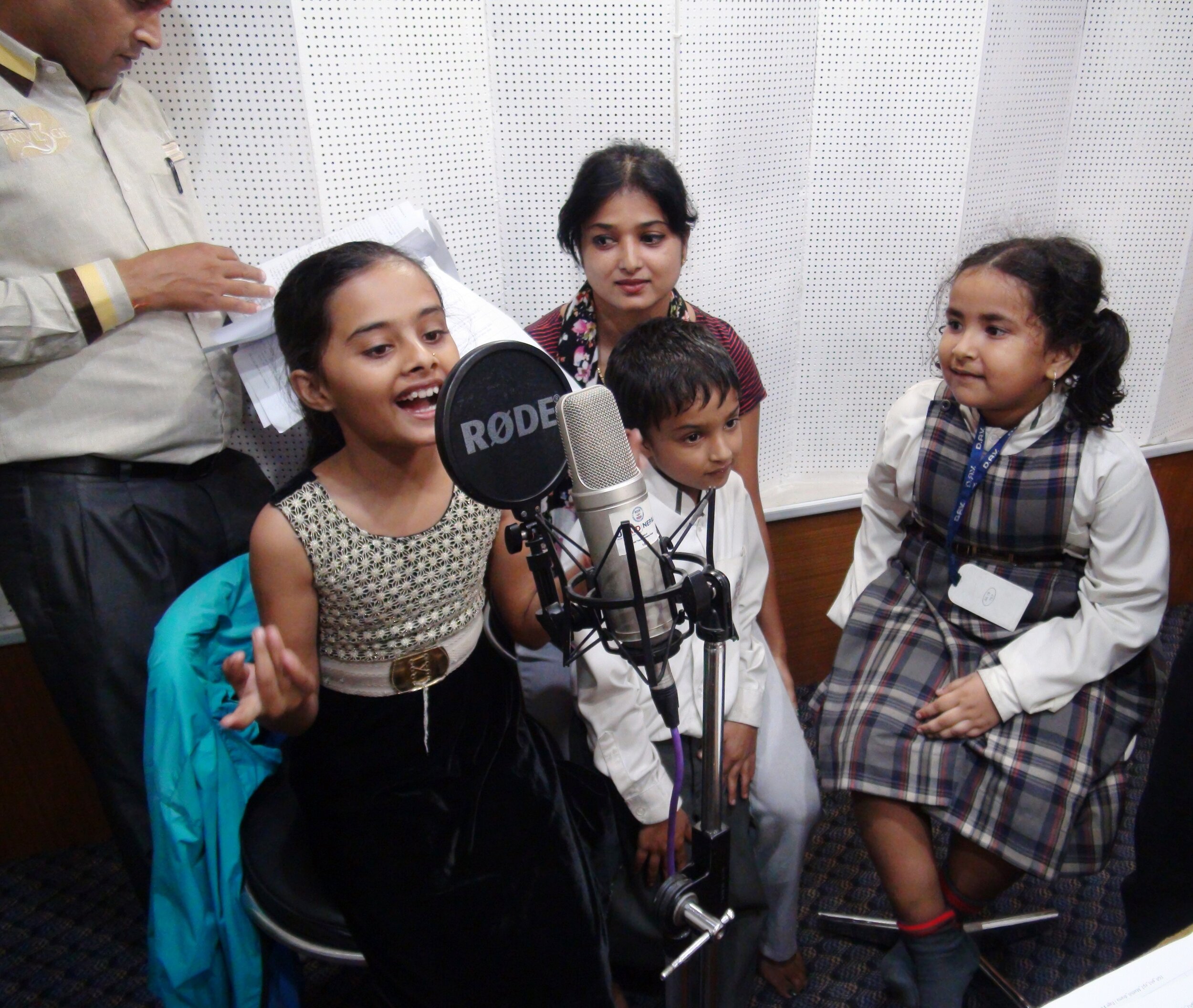The Another Option team on the ground in Nepal has just recorded additional public service announcements in two more languages, Newari and Maithili. The PSAs support our ongoing work on the USAID/Nepal’s Early Grade Reading Program (EGRP).
Adapting intervetions to local cultural contexts
Another Option has been working in early grade reading for four years in Africa and Asia under several USAID-funded awards. Research shows that barriers to education, parental aspirations, and societal norms are similar across the world and do not change that dramatically—whether you are in West Africa or South Asia.
As part of the USAID Early Grade Reading Program (EGRP) in Nepal, we’ve provided technical support in early grade reading Social and Behavior Change. We’ve worked closely with the Government of Nepal stakeholders including the Department of Education and the National Center for Education Development to design and develop numerous training materials for parents and caretakers, teachers, and education officers to support early grade reading. Developed resources including a peer education module for parents, and an interpersonal communication toolkit for teachers to bridge communication gaps with students’ parents.
In Nepal, we worked very closely with the government of Nepal to design and create all of our materials. And, we’re really pleased that the teacher training guide has been accepted by the government of Nepal as part of its national teacher training curriculum.
Because the social mobilization and interpersonal communication have shown results in Nepal, we wanted to test these materials in Liberia to see if they could be adapted to the Liberian setting and its needs for our USAID Read Liberia.
With permission from the Liberian Ministry of Education to pre-test the peer education materials, we set out to answer three critical questions: do parents understand the content (particularly the graphics and illustrations); was the guide culturally sensitive; and would it resonate with Liberian parents of young readers.
We conducted an assessment with twenty-one parents-twelve women and nine men-in two communities – one urban and one rural—at Slipway Public School and King’s Farm Public School. We found that the barriers to education and aspirations were similar to parents and teachers in our Nepal-based early reading program. Parents we interviewed in both places cited factors related to economics, social norms, existing education infrastructure, and gender as real challenges in their attempts to ensure their children received a decent education.
Illustration from Another Option's Peer Guide created for parents and caregivers in Nepal.
The Liberian parents overall did relate to the illustrations that were developed for Nepali parents, and that the tools were able to generate insightful discussions about the roles of parents in the reading lives of their children both in and out of school. Parents at both of our focus groups said they could see themselves and their challenges reflected in the illustrations.
Parents also provided feedback on specific visual details that Another Option could do to make the resources more relatable to the Liberian context. For example, participants indicated that some of the hand gestures used in the Nepali context varied in their interpretation in Liberia and could confuse the user. They also asked for more illustrations bridging into the community and not just in the school setting to allow parents to see their roles as educators throughout their daily interactions with their children. Additionally, much discussion was held around the differences of the education setting in rural areas versus urban areas and how these could be better portrayed.
An illustration from the Liberia edition of our Peer Guide.
Based on these responses, we worked with local illustrators to improve the cultural resonance of the illustrations in efforts to make it more relevant to parents and caregivers in urban and rural communities in Liberia. Additional materials like flyers and posters will be developed for social mobilizers to use during community engagement activities promoting early grade reading. The final Liberian version has been shared with the Ministry of Education and we have received the go ahead to test it in the field across several counties.
With these changes, parents will have specific examples on what they can do to help their children learn to read. These include children reading aloud for ten minutes a day, children having a quiet place to read, and regularly going to school.
In both Nepal and in Liberia the support and guidance from the Ministries of Education were invaluable. The Nepal version is endorsed and carries the seal of the Ministry of Education, and we hope that the Liberian ministry also adds its endorsement to this early grade reading tool.
Workshop to Support Early Grade Reading Held in in Gbarnga, Liberia
Community engagement and social mobilization are at the heart of USAID Read Liberia. Another Option for the activity organized and conducted a one-day workshop to introduce Read Liberia to local Community-based organizations. The meeting was held in Gbarnga, Bong County on April 24, 2018.
The workshop was designed for community-based organizations (CBOs) to share their activities in social mobilization and identify opportunities where early grade reading activities, i.e., reading clubs, parent-teacher meetings, reading contests, could be included in their outreach programs. It was helpful in our planning to learn from their rich experiences, as well as to build-in discussions of what are effective approaches to community engagement.
The large group of 52 community workers were divided into smaller working groups. They shared their different experiences on introducing different behaviors in health and education. In addition to sharing activities that worked they talked about lessons learned and what didn’t work. The workshop concluded by drawing examples of how these experiences and interventions related to the new USAID activity especially focusing on parents’ engagement in early grade reading.
Recommendations included the development of peer education training and social mobilization materials to support key messages on early grade reading as well as introducing a monitoring system to support transparency and accountability of USAID Read Liberia activities.
This workshop is the first of several planned community meetings to discuss benefits and ways to increase early grade reading in Liberia.
The initiative is active in six counties: Nimba, Lofa, Bong, Margibi, Montserrado, and Grand Bassa.







